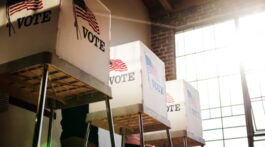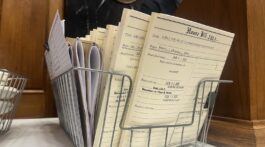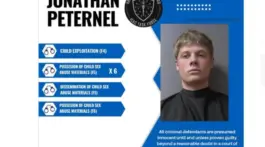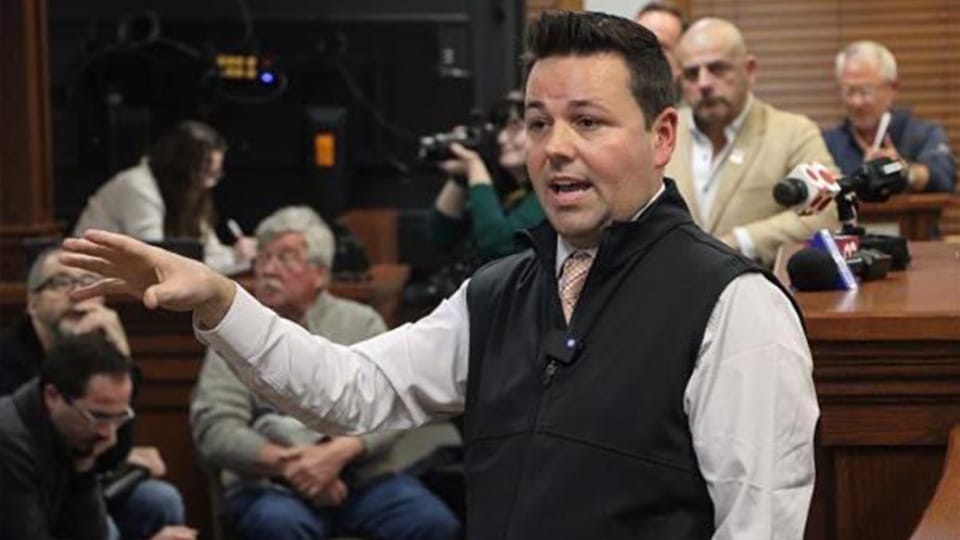by Abdul-Hakim Shabazz, Esq.
When Lieutenant Governor Micah Beckwith called into Fort Wayne’s WOWO intending to put out a political fire, he instead tossed a lit match into a dry field. What started as a defensive rant quickly became a public admission, an unverified relaying of grand-jury testimony, and a guided tour through every legal tripwire a state official could step on.
Beckwith told WOWO that a “Soros-funded, rogue, leftist prosecutor” in Marion County had convened a grand jury probing his office—then proceeded to describe what a staffer told him about that very grand-jury interview. “We got wind from somebody that they did interview that connected to our office,” Beckwith said. “And this person came back and told me… what was asked about the AI video. And not one time did the AI video come up.”
That’s the part that should make every attorney in Indiana wince. Grand-jury proceedings are supposed to be secret for a reason: to protect witnesses, the accused, and the integrity of the investigation. Under Indiana Code 35-34-2-10, anyone involved in the process—including prosecutors, grand jurors, interpreters, and court reporters—is legally bound to keep it confidential. Witnesses aren’t gagged by law, but when the target of that same grand jury goes on the radio and recounts what a witness told him, he’s not just pushing the ethical line—he’s dancing on it in cleats.
Beckwith’s public retelling could raise real questions of obstruction and witness intimidation. When the person under scrutiny publicly names the witness (or even hints at who they are), comments on what they said, and paints the investigation as politically motivated, it can chill other witnesses from cooperating. Prosecutors tend to take a dim view of that. And so do judges.
Then there’s the “leak” admission. Beckwith said on air: “You’re not supposed to know that there’s a grand-jury investigation going on… but it leaked right before we go into the redistricting fight.” That statement alone is remarkable—a sitting lieutenant governor confirming that a confidential criminal proceeding exists and speculating publicly about its timing and motives. If the leak originated anywhere near his circle, he may have just handed investigators probable cause to widen their scope.
Beckwith also suggested that the staffer who spoke to the grand jury—the employee he referenced on air—was someone he’d already let go. Local sources identify that former senior advisor as Erin Sheridan. Beckwith described the allegation against the office as riddled with holes: the accuser “can’t remember whose phone it was” or “who all were there,” he said, and insisted his staff had been vetted to “live above reproach.” But in saying so, he effectively connected Sheridan to a sealed proceeding—something prosecutors can and will note when reviewing whether grand-jury secrecy was compromised.
It gets worse. Beckwith accused Marion County Prosecutor Ryan Mears of being “Soros-funded,” which is demonstrably false. No record exists—state, federal, or otherwise—showing Mears has ever received funding or support from George Soros or any affiliated PAC. That’s not a defense tactic; it’s a smear. And when a constitutional officer spreads knowingly false claims about a sitting prosecutor during an active investigation, it blurs the line between protected political speech and actionable defamation per se.
What Beckwith omitted is that Mears has full jurisdiction to investigate. Marion County encompasses the Statehouse and all state government offices located in Indianapolis. If alleged misconduct occurs there, Mears is the one with the badge and the authority to act. Moreover, by convening a grand jury, Mears actually reduces the appearance of prosecutorial bias. The decision to indict or not rests with a panel of citizens, not the prosecutor alone. It’s an imperfect safeguard, but a safeguard nonetheless.
And then there’s the time-card issue. Beckwith volunteered that the grand jury asked questions about timekeeping in his office—what prosecutors call potential ghost employment. “They were just fishing so hard to find something that they could set us to the wall with,” he said. “Have you ever lied on your time card? … What about other people in the office?” In trying to downplay the inquiry, he effectively confirmed that investigators are examining whether taxpayer-funded time was properly reported. That’s not political—it’s criminal if proven true.
Notably, the topic of child sex abuse by the son of a fellow pastor—a story that has dogged parts of Indiana’s evangelical community—did not come up at all during the grand-jury questioning. Beckwith made a point of noting that it wasn’t discussed and, in doing so, deftly grapevined away from that particular land mine—perhaps the only one he didn’t step on this week.
Legally speaking, Beckwith’s comments are a field manual on what not to say during an active investigation. He potentially exposed himself to claims of obstructing justice, prejudicing a proceeding, or defaming an elected prosecutor—all while confirming an investigation exists and identifying a witness. Even if none of it crosses the criminal threshold, it absolutely demolishes the norms of confidentiality that keep grand juries credible.
While elected officials enjoy broad latitude in political speech, when those statements collide with ongoing criminal proceedings, the line between opinion and interference becomes perilously thin.
For the media, it’s a gold mine. For prosecutors, it’s an evidentiary gift.
For Micah Beckwith, it’s a mine field—one he just tapped danced through on live radio, whistling the whole way.
For full disclosure: former senior advisor Erin Sheridan has agreed to cover the 2026 legislative session for Indy Politics.











